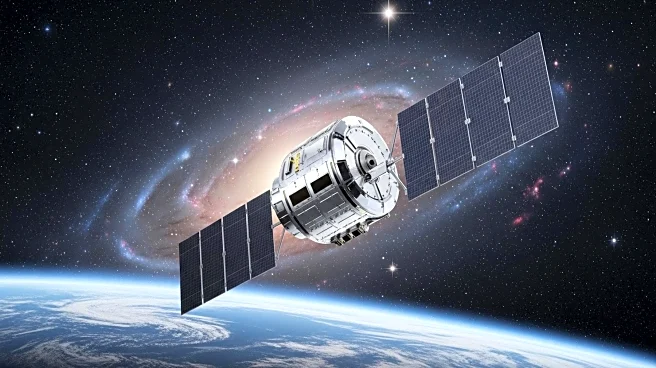What is the story about?
What's Happening?
The European Space Agency (ESA) has signed a memorandum of understanding (MoU) with the Korea AeroSpace Administration (KASA) to enhance cooperation in various space-related activities. This agreement, announced at the 76th International Astronautical Congress in Sydney, allows the agencies to utilize each other's ground stations for telemetry, tracking, and command functions. The MoU covers future cooperation areas such as space science, exploration, human spaceflight, and in-space infrastructure. Additionally, ESA is strengthening its partnership with the Japan Aerospace Exploration Agency (JAXA) through a rideshare agreement involving ESA's Ramses spacecraft and Japan's Destiny+ mission. These spacecraft will launch together on a Japanese H3 rocket to study the asteroid Apophis, which is expected to have a close encounter with Earth in 2029.
Why It's Important?
This expansion of international cooperation by ESA is significant as it opens new opportunities for collaborative space exploration and scientific research. By partnering with South Korea and Japan, ESA can leverage shared resources and expertise, potentially accelerating advancements in space technology and exploration. The collaboration with South Korea supports its lunar ambitions, including the development of a robotic lunar lander and plans for a moon base by 2045. The partnership with Japan on the Ramses mission exemplifies efficient project development and implementation, showcasing the benefits of international rideshare agreements. These efforts reflect ESA's strategy to diversify and deepen global partnerships amid uncertainties regarding NASA's budget and future cooperative programs.
What's Next?
ESA's collaboration with South Korea and Japan is expected to continue evolving, with potential new projects and missions emerging from these partnerships. South Korea's lunar program, supported by ESA's global ground station network, may see further developments, including the launch of a homegrown rocket for its lunar lander. The Ramses mission's study of asteroid Apophis will provide valuable scientific data, contributing to global understanding of near-Earth objects. ESA's ongoing discussions with India may also lead to expanded cooperation in exploration, Earth observation, and operations, further strengthening its global network of space partnerships.
Beyond the Headlines
The deepening of ESA's international partnerships highlights the growing importance of collaborative efforts in space exploration. These alliances not only enhance technological capabilities but also foster peaceful cooperation among nations. The focus on shared goals and resources underscores the potential for space exploration to serve as a unifying force, promoting scientific advancement and mutual understanding across borders. As space agencies navigate geopolitical and budgetary challenges, such partnerships may become increasingly vital for achieving ambitious exploration objectives.
















